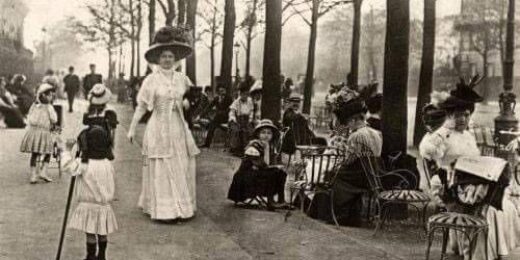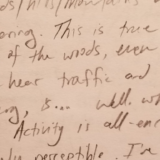An Ambiguous Utopia
I just finished The Dispossessed by Ursula K. Le Guin, and despite the fact that I am probably not going to contribute much to the body of criticism surrounding it, I wanted to write down some thoughts. Also, this is my book club’s book for June, so any other members who read this will be somewhat spoiled on my thoughts.
The first thing to note, as always, when talking about something by Le Guin, is the quality of her prose. She is almost certainly the finest writer (in terms of mechanics of prose, diction, etc.) in the science fiction firmament (or at least is in the discussion), and that’s worth pointing out.
A quick summary, in case you haven’t read it and still want to know what the heck I’m talking about:
The main character is a physicist named Shevek. He lives on a planet called Annares, which is either a moon or a twin of another planet (Urras), although which is never quite clear. The Annaresti are all descendants of colonists from Urras who left 170 years ago to found a radical anarchist society. That society is built around the sort of left-libertarian ideals of the 60s and 70s (the book was printed in 1974) – a stateless society, eradication of gender roles, free love, communitarian sharing of work, and so on.
Shevek’s work centers around radical ideas in the science of time. These ideas are not welcomed by the other Annaresti members of his profession, because of their radicalism, and he is barred from publishing or engaging in the limited modes of communication that exist between Annares and Urras. Eventually Shevek manages to convince the Annaresti to let him travel to Urras, where he finds the right-wing (or “propertarian”) society from which his ancestors fled: capitalist, but also brutally militaristic and with rigidly defined gender roles.
I won’t spoil any more, because I think you can see the main conflicts here.
What strikes me most about this book is that Annares feels real. We all grew up with books like Animal Farm or Nineteen Eighty-Four or (shudder) Anthem, which are more anti-Communist (capital C) than anti-communitarian – although you can make a good argument that Animal Farm is closest to The Dispossessed’s natural enemy. We have this image of communitarian society as the kind of thing that’s inextricably tied to the state, whereby the state transforms into a murderous enforcer of orthodoxy.
For those of us who envision a kind of non-statist left, this has always felt… hollow. I know that I’m inviting a chorus of “no true Scotsman” or “Soviet Russia wasn’t really communist”, which is not exactly what I intend to do. My point is only that of course marrying communitarian ideals to the state is horrifying; marrying anything to the state is horrifying. The state itself is horrifying, regardless of what you attach to the side of it.
So if The Dispossessed succeeds, and I think it does, it’s by confronting what happens if you can somehow detach the state from a communitarian society. I like that the subtitle of this book is “An Ambiguous Utopia”, because Le Guin is willing to take a hard look at that ambiguity. The Annaresti do build up a sort of quasi-government based around the fact that they need some kind of central administrative body to handle who is doing work on which part of the planet. This body gradually accretes the power to ostracize individuals who are insufficiently communitarian (called “egoizers”, which I love), culminating in the hamstringing of Shevek’s work for its failure to comply with society’s notions of the “right” kind of physics.
There is a nice warning embedded in here about the character of social power. This is roughly the same warning embedded in Animal Farm, for what that’s worth, but Le Guin is more sympathetic to the idea that this can work if we’re sufficiently willing to keep trying. Shevek makes several references to the notion of constant revolution, which underlies any anarchistic idea of social arrangements. Human nature being what it is, we must constantly be on guard against conformity and control.
One of the scenes that struck me the most was near the beginning of the book. There is a flashback to Shevek as a baby, in which he refuses to share a toy with another baby. This is, perhaps, a perfect instance of “egoizing”, and it is pure reflex. I think it says something about Le Guin that she is willing to write an ode to left-anarchism in which her own main character’s first (chronologically speaking) action is fundamentally propertarian. It probably also says something about the rest of us that we think teaching children to share is one of the key points in their development.
One last thought: Le Guin’s characters regularly refer to themselves as “libertarians”, in direct contrast to the propertarians. It’s an interesting look at how that word’s popular meaning in the U.S. has changed over the last 40 years.






























Good thoughts. Haven’t read you enough to put them in perspective yet. But no errors at least in this post.
1) the term libertarianism was intentionally appropriated. I’m not sure it evolved per se. 😉
2) I don’t see much left of left libertarianism.
3) I am not sure that I agree with your use of propertarian. Which refers to the reduction of human rights to property rights, and has nothing to do with the state. one can use propertarian analysis to advocate individual property rights, but I don’t see any cases where t is used to justify the state. The written record is composed of just the opposite. Property is antithetical to statism. Democratic socialism treats all property as communal, but leased out to individuals in order to provide them with incentives. Anarcho capitalism and monarchy, and even republican capitalism treat property as individual with incr easing obligations to the community in order to prevent free riding. But it’s hardly statist to advocate property. So either I misunderstand you or you’re conflating property and state.
4) the problem that both communal and individual property models face, is that freedom is the desire of a creative minority. It is all well and good that liberty lovers of all kinds create free utopian models. But the vast unwashed masses are demonstrably interested in little else but rent seeking. Leaving democratic government of any kind. Little but a tool by which to capture the productivity of the creative classes.Report
On the issue of “propertarian”, in this post I use it only in the sense Le Guin’s characters use it in the book: to refer to those (the Urrasti, mainly) who live in a society where individuals own things (in contrast to the anarchist Annaresti, who have no individual property). I agree that there’s no reason the state and propertarianism have to be combined, which I think is actually a really useful back-of-the-envelope way of distinguishing between right- and left-libertarianism. But, for the purposes of meaningfully talking about this book, Le Guin’s characters use “libertarian” to mean what I would call left-libertarian and “propertarian” presumably includes a large number of social arrangements in which individuals own property.
Thanks for the comment. Very thoughtful stuff.Report
Haven’t read this yet, but I did read ‘The Left Hand of Darkness’ recently, and there’s a similar juxtaposition of societies in that book as well, though neither is particularly nationalistic. The more communitarian and centralized society is presented in rather bleak terms. Compared to their monarchical neighbors, they are like half-people, drained of any individual will and controlled by the secret police.
Now I’m curious to read this one and compare.Report
Despite a few painful spots, this is probably my most favorite of all LeGuin’s books (and she’s in my small handful of favorite writers). I really enjoyed reading your thoughts about it.Report